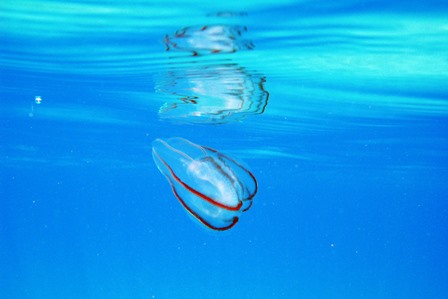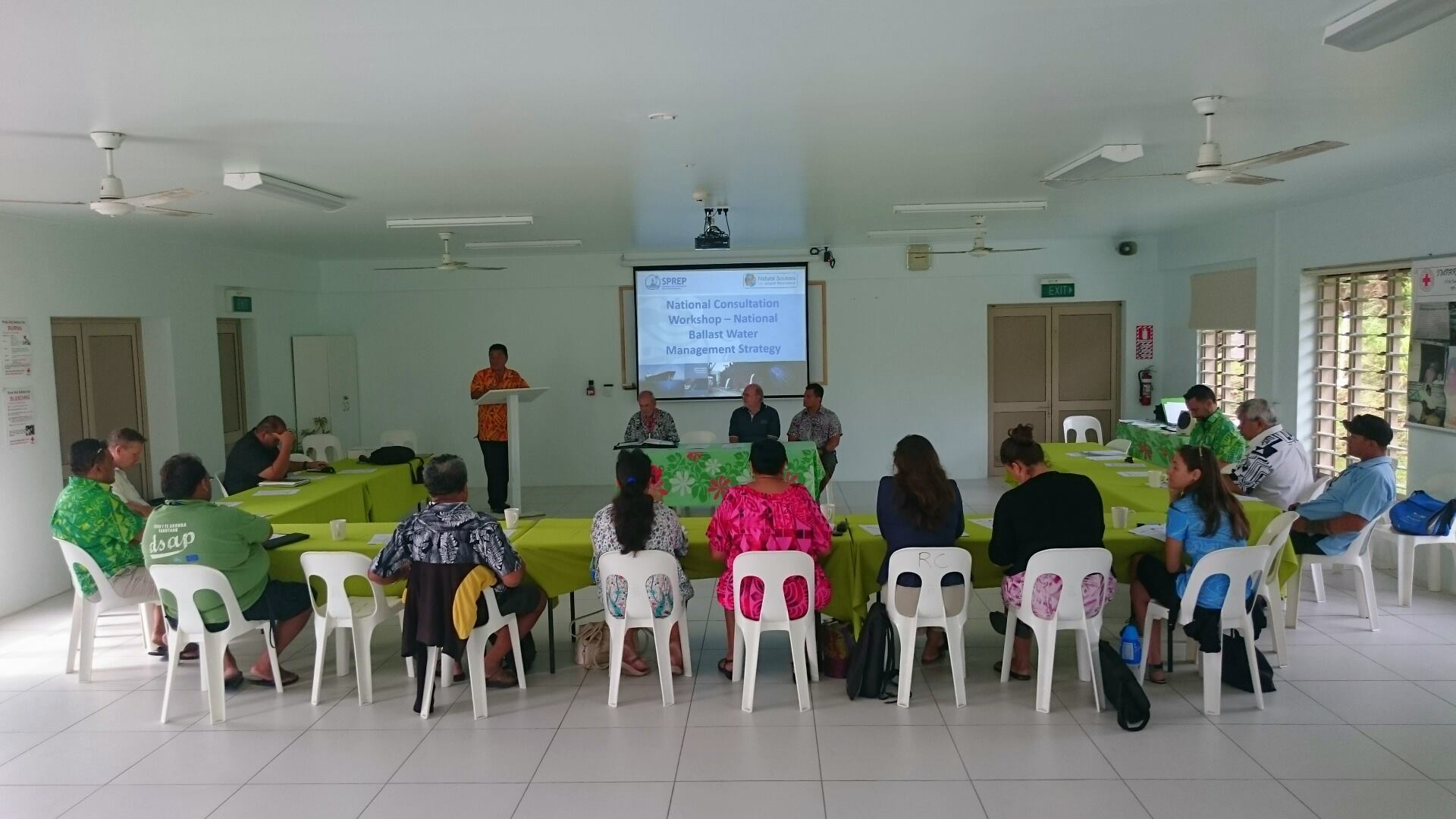
Waste Management and Pollution Control
18 February, 2016, Rarotonga, Cook Islands - The Cook Islands is the third of 14 Pacific island countries working to develop National Ballast Water Strategies to address the spread of marine invasive species through ships. The island nation has also signed the International Ballast Water Management Convention which is awaiting one more signatory before coming in to force 12 months after that.
Statistics show in 2013, close to 100,000 vessels sailed into Pacific island ports as well as through the Pacific island region. It is estimated that 7,000 species are carried around the world in ballast water every day with 10 billion tonnes of ballast water transferred globally each year.
A two day training in the Cook Islands is helping to develop national strategies and guidelines in line with global obligations. Samoa and Tuvalu completed their national ballast water management strategies in 2015.

"This will let us know what our duties and responses are so we can address any possible marine invasive species issue in the Cook Islands that may come in through ballast water," said Mr. Steven Simpson of the Maritime Division, Cook Islands Ministry of Transport.
"Our ecology is very finely balanced in the tropics and for that reason we face this very real threat to our coastal and marine biodiversity."
Ballast water is seawater used by ships to help them stabilise and balance. Ships with no cargo are filled with water, when there is cargo the water in the ballast tanks is drained as required to help maintain balance. This results in ships collecting seawater and the species it contains at one port then emptying this in different ports or at sea.
The comb jellyfish introduced in the Black Sea through ballast water in the early 1980's wreaked havoc on the entire ecosystem. By 1992 the annual losses caused by drops in commercial catches of marketable fish were estimated at USD 240 million, by 1994 the area's anchovy fishery had almost disappeared.

"In this case, the prevention is definitely better than the cure," said Mr. Anthony Talouli the Acting Director of the Waste Management and Pollution Control Division of the Secretariat of the Pacific Regional Environment Programme (SPREP).
"In most instances you don't find out about the marine invasive species until it is too late, what we are trying to do is to protect this ocean of islands by helping to develop strategies and guidelines to stop them from spreading into our oceans as best we can."
The training is held on 18 and 19 February at the Cook Islands Red Cross Headquarters, it is coordinated by SPREP in partnership with the International Maritime Organization and the Cook Islands Ministry of Transport.
Statistics show in 2013, close to 100,000 vessels sailed into Pacific island ports as well as through the Pacific island region. It is estimated that 7,000 species are carried around the world in ballast water every day with 10 billion tonnes of ballast water transferred globally each year.
A two day training in the Cook Islands is helping to develop national strategies and guidelines in line with global obligations. Samoa and Tuvalu completed their national ballast water management strategies in 2015.

Image of Ctenophore Comb Jelly, the Mnemiopsis leidyi is a species of Comb Jellyfish which
was introduced into the Black Sea though ballast water and is now a marine invasive species.
Image: www.freeimages.co.uk
was introduced into the Black Sea though ballast water and is now a marine invasive species.
Image: www.freeimages.co.uk
"This will let us know what our duties and responses are so we can address any possible marine invasive species issue in the Cook Islands that may come in through ballast water," said Mr. Steven Simpson of the Maritime Division, Cook Islands Ministry of Transport.
"Our ecology is very finely balanced in the tropics and for that reason we face this very real threat to our coastal and marine biodiversity."
Ballast water is seawater used by ships to help them stabilise and balance. Ships with no cargo are filled with water, when there is cargo the water in the ballast tanks is drained as required to help maintain balance. This results in ships collecting seawater and the species it contains at one port then emptying this in different ports or at sea.
The comb jellyfish introduced in the Black Sea through ballast water in the early 1980's wreaked havoc on the entire ecosystem. By 1992 the annual losses caused by drops in commercial catches of marketable fish were estimated at USD 240 million, by 1994 the area's anchovy fishery had almost disappeared.

The National Ballast Water Management Strategy Training in the Cook Islands
"In this case, the prevention is definitely better than the cure," said Mr. Anthony Talouli the Acting Director of the Waste Management and Pollution Control Division of the Secretariat of the Pacific Regional Environment Programme (SPREP).
"In most instances you don't find out about the marine invasive species until it is too late, what we are trying to do is to protect this ocean of islands by helping to develop strategies and guidelines to stop them from spreading into our oceans as best we can."
The training is held on 18 and 19 February at the Cook Islands Red Cross Headquarters, it is coordinated by SPREP in partnership with the International Maritime Organization and the Cook Islands Ministry of Transport.